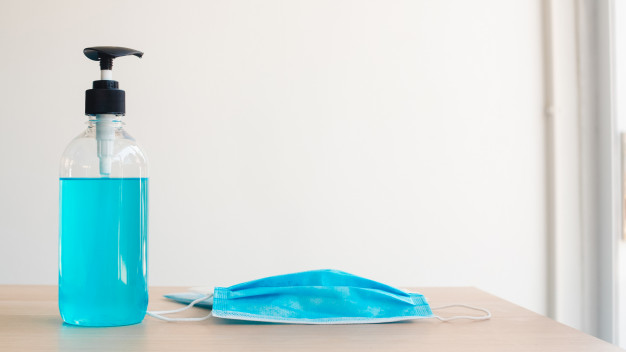FIGHT TOGETHER

Elderly patients aged more than 60 years and those with co-morbid conditions such as hypertension, diabetes, heart disease, chronic lung or liver or kidney disease, cerebrovascular disease etc shall only be allowed home isolation after a proper evaluation by the treating medical officer, it added.
In case of falling oxygen saturation levels or shortness of breath, the person should require hospital admission and seek immediate consultation with the treating physician or surveillance team.
What are the recommendations on treatment in home isolation?
The government has made general and specific recommendations. The general guidelines state that patients must be in communication with a treating physician and promptly report any deterioration in condition. The Covid-positive patient should also continue the medication for other co-morbid illnesses after consulting the treating physician.
What if the fever is not controlled?
* The guidelines recommend that if the fever is not controlled with the maximum dose of paracetamol tablets (650mg four times a day), the patient should consult the treating doctor “who may consider advising other drugs like a non-steroidal anti-inflammatory drug (NSAID)” such as Naproxen (250 mg twice a day). The guidelines suggest further that the doctor consider ivermectin tablets (200 mcg/kg once a day, to be taken on an empty stomach) for 3 to 5 days.
* If the fever persists beyond 5 days of disease onset, inhalational budesonide (given via inhalers with spacer at a dose of 800 mcg twice daily for 5 to 7 days) can be given if symptoms (fever and/or cough) are persistent beyond 5 days of disease onset.
* And if the fever persists beyond 7 days, with worsening cough, the guidelines suggest that the patient consult the treating doctor for treatment with low-dose oral steroids.
What to do if you feel unwell
* Know the full range of symptoms of COVID-19. The most common symptoms of COVID-19 are fever, dry cough, and tiredness. Other symptoms that are less common and may affect some patients include loss of taste or smell, aches and pains, headache, sore throat, nasal congestion, red eyes, diarrhoea, or a skin rash.
* Stay home and self-isolate even if you have minor symptoms such as cough, headache, mild fever, until you recover. Call your health care provider or hotline for advice. Have someone bring you supplies. If you need to leave your house or have someone near you, wear a medical mask to avoid infecting others.
* If you have a fever, cough and difficulty breathing, seek medical attention immediately. Call by telephone first, if you can and follow the directions of your local health authority.
* Keep up to date on the latest information from trusted sources, such as WHO or your local and national health authorities. Local and national authorities and public health units are best placed to advise on what people in your area should be doing to protect themselves.

The protocol recommends that children with moderate Covid-19 disease should be admitted in a dedicated Covid health centre or secondary-level healthcare facility, and monitored for clinical progress.It recommends that fluid and electrolyte balance should be maintained. “Encourage oral feeds (breast feeds in infants); if oral intake is poor, intravenous fluid therapy should be initiated,” it recommends.
Don’t forget the basics of good hygiene
Regularly and thoroughly clean your hands with an alcohol-based hand rub or wash them with soap and water. This eliminates germs including viruses that may be on your hands.
Avoid touching your eyes, nose and mouth. Hands touch many surfaces and can pick up viruses. Once contaminated, hands can transfer the virus to your eyes, nose or mouth. From there, the virus can enter your body and infect you.
Cover your mouth and nose with your bent elbow or tissue when you cough or sneeze. Then dispose of the used tissue immediately into a closed bin and wash your hands. By following good ‘respiratory hygiene’, you protect the people around you from viruses, which cause colds, flu and COVID-19.
Clean and disinfect surfaces frequently especially those which are regularly touched, such as door handles, faucets and phone screens.
Randomized controlled trials of this drug in patients above 18 years of age has not shown significant survival benefits. An emergency use authorization for children has been granted. Till more data are available, it should be used in restricted manner in children with severe illness within three days of onset of symptoms after ascertaining that child’s renal and liver functions are normal and they are monitored for side effects of medicine,” the protocol states.